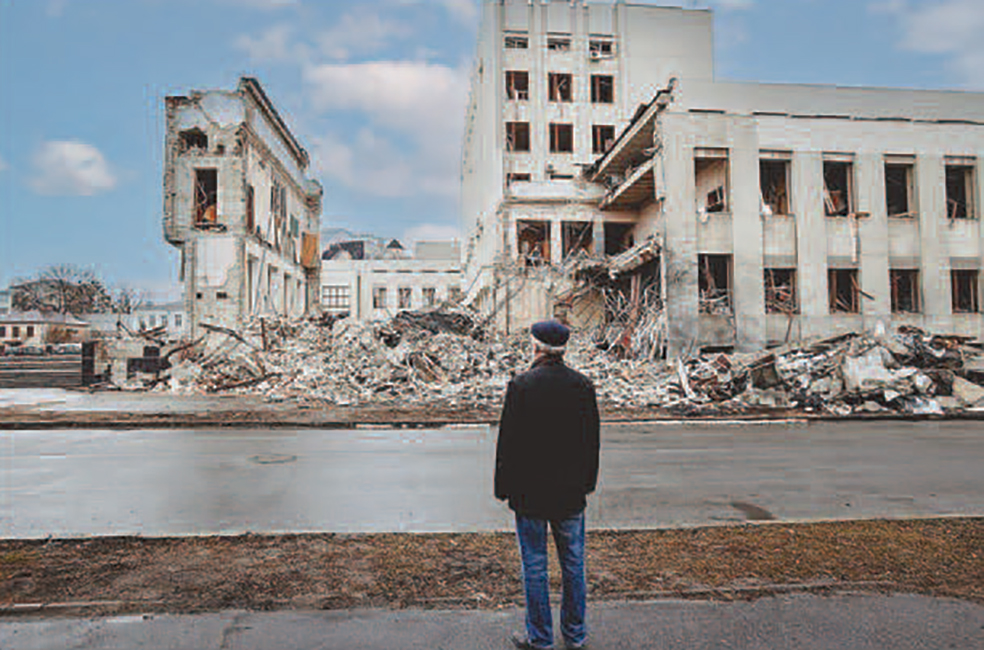Declaration on the protection of archives, libraries, museums and heritage places during armed conflicts and political instability

May 2024 marks the 70th anniversary of the 1954 Hague Convention for the Protection of Cultural Property in the Event of Armed Conflict, the first international treaty that focused exclusively on this issue. Today, at an increasing and alarming rate, many painful events have recently caused an immense loss of human life, and damage to the world’s cultural and documentary heritage.
The International Council on Archives (ICA), the International Council of Museums (ICOM), the International Council on Monuments and Sites (ICOMOS) and the International Federation of Library Associations and Institutions (IFLA) express their profound concern about this escalating destruction of life and cultural heritage during armed conflict and political instability.
We abhor the loss of life and reaffirm the priority of protecting all people. We also deplore attacks and destruction of museums, archives, libraries and heritage places, as they are a vital and unique part of the culture of the peoples affected by the conflict. ICA, ICOM, ICOMOS and IFLA urge all parties involved in conflict to respect and protect all libraries, archives and museums and heritage places.
We recall that all cultural and documentary heritage is indispensable to the survival of our societies and that continuous international and cross-sectoral cooperation is essential for its effective protection. To this end, the four organizations formed the International Committee of the Blue Shield in 1996, through which, among other, they work together to prepare for and respond to emergencies that may affect cultural heritage.
Throughout these emergency situations, our libraries, museums, archives and heritage places have demonstrated the important roles that they play in protecting and promoting tangible and intangible cultural heritage and in bringing communities together. Culture is an essential element for recovery and for promoting peace.
Archives and records provide evidence of the past and the present and contribute to a more transparent society and the strengthening of democracy. They stand for memory, truth and justice and play a crucial role in documenting human rights violations. In peacetime, they are essential for rebuilding society and consolidating peace, helping people to restore their lives, setting the record straight and providing trustworthy evidence.
Museums are active players in the conservation, protection, and dissemination of cultural heritage and thus
have a central role in bringing communities together both in times of crisis and in times of peace. Museums
and their collections are therefore important not only for their cultural and educational missions, as well as their social and economic roles in ensuring accessibility for wide audiences and future generations and promoting local development.
Libraries are spaces that connect the past, present, and future. They are hubs for community building and their services benefit people throughout their lives, especially the most vulnerable members of society. The destruction of libraries and their collections is a direct attempt to erase identity, memory, and spaces for people to come together in the spirit of reconciliation. To uphold the human rights of access to information, freedom of expression, and participation in cultural life, libraries must be protected.
Heritage places go beyond monuments and sites, including large complex areas, landscapes, settings and their intangible dimensions. Heritage belongs to everyone: men, women, children, indigenous peoples, ethnic and minority groups. It spans ancient to modern, rural to urban, everyday to elite, encompassing value-systems, beliefs, traditions and lifestyles, together with uses, customs, practices and traditional knowledge. Conserving their significance, integrity, and authenticity requires people-centered, rights-based approaches.
Our organisations thus jointly recall the importance of protecting cultural and documentary heritage as an essential component of cultural rights and express the shared position that cultural and documentary heritage professionals play an essential role in building a peaceful, sustainable, and collective future. Archivists, librarians, museum and heritage professionals use available resources to protect the materials in their custody during times of war. We therefore urge all involved in conflict to respect the work of these professionals and to protect their lives and integrity.
30 May 2024